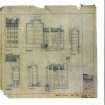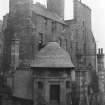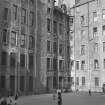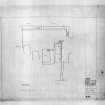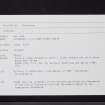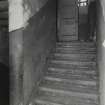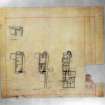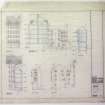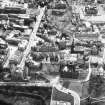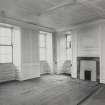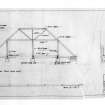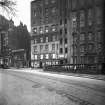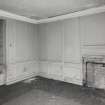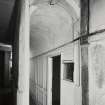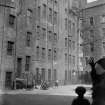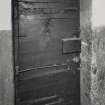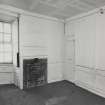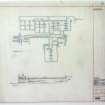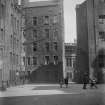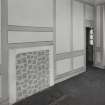Following the launch of trove.scot in February 2025 we are now planning the retiral of some of our webservices. Canmore will be switched off on 24th June 2025. Information about the closure can be found on the HES website: Retiral of HES web services | Historic Environment Scotland
Edinburgh, 11-13 North Bank Street
Public House (Period Unknown), Tenement (18th Century)
Site Name Edinburgh, 11-13 North Bank Street
Classification Public House (Period Unknown), Tenement (18th Century)
Alternative Name(s) Lawnmarket, 6 - 8 James Court; The Mound, Browning's Building
Canmore ID 52283
Site Number NT27SE 263
NGR NT 25534 73618
Datum OSGB36 - NGR
Permalink http://canmore.org.uk/site/52283
- Council Edinburgh, City Of
- Parish Edinburgh (Edinburgh, City Of)
- Former Region Lothian
- Former District City Of Edinburgh
- Former County Midlothian
NT27SE 263 25534 73618
Built by James Brownhill 1723-7. Eight storeys and attic above North Bank Street.
RCAHMS 1951; J Gifford, C McWilliam and D Walker 1984.
The name Browning's Building used on collection items JFJ/1970/5/1/1-2 probably relates to James Brownhill for whom James Court was originally built (AC 19 December 2001).
Publication Account (1951)
13. James' Court, 501 Lawnmarket.
The buildings that face the Lawnmarket are modern, but in the W. wall of one of them has been inserted a weatherworn lintel from a house long since demolished. This has in the centre a shield surmounted by a crown, with a representation of God the Father above supporting Christ crucified. The shield, which bears a quartered coat, now indecipherable, is flanked by two sets of initials, A S and, probably, E I. On either side runs the inscription BLISSIT BE THE LORD I[N] AL HIS GIFTIS FOR NOV AND EVIR.
The buildings at the N.E. corner [NT27SE 263] were erected in 1723 by James Brownhill (1), from whom the Court takes its name. Above North Bank Street they rise in an impressive façade of no fewer than eight storeys, while towards the front there are six. But only the E. part of Brownhill's work has survived, the W. portion having been burnt down in 1857 (2) and replaced by the offices of the Free Church of Scotland and of the Edinburgh Savings Bank. A drawing preserved in the National Gallery shows both portions complete. The buildings are well planned with a solid-newel stair, continuous from ground to top, which may be entered either from the street or from the Court. Some of them still have panelled rooms of the early and later parts of the 18th century.
To the S. of Brownhill's building stands an older tenement [NT27SE 262], much altered and recently harled, which has an irregularly-shaped stair-tower projecting from its N. end, and what may have been a stair-turret projecting from half-way up its W. wall.
RCAHMS 1951, visited c.1941
(1) O.E.C., iii, p. 247. (2) Drummond, Old Edinburgh. vi.




























